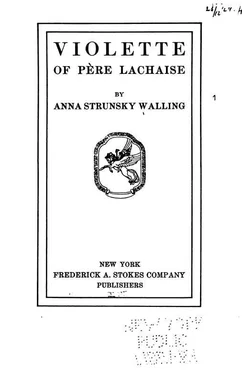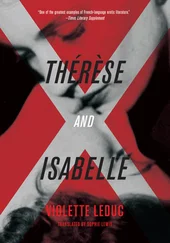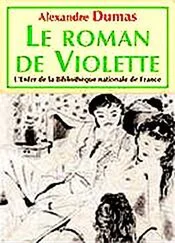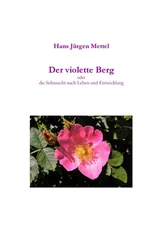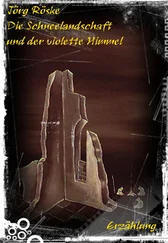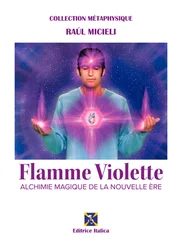Anna Strunsky - Violette of Père Lachaise
Здесь есть возможность читать онлайн «Anna Strunsky - Violette of Père Lachaise» весь текст электронной книги совершенно бесплатно (целиком полную версию без сокращений). В некоторых случаях можно слушать аудио, скачать через торрент в формате fb2 и присутствует краткое содержание. Город: New York, Год выпуска: 1916, Издательство: Frederick A. Stokes Company, Жанр: great_story, на английском языке. Описание произведения, (предисловие) а так же отзывы посетителей доступны на портале библиотеки ЛибКат.
- Название:Violette of Père Lachaise
- Автор:
- Издательство:Frederick A. Stokes Company
- Жанр:
- Год:1916
- Город:New York
- ISBN:нет данных
- Рейтинг книги:4 / 5. Голосов: 1
-
Избранное:Добавить в избранное
- Отзывы:
-
Ваша оценка:
- 80
- 1
- 2
- 3
- 4
- 5
Violette of Père Lachaise: краткое содержание, описание и аннотация
Предлагаем к чтению аннотацию, описание, краткое содержание или предисловие (зависит от того, что написал сам автор книги «Violette of Père Lachaise»). Если вы не нашли необходимую информацию о книге — напишите в комментариях, мы постараемся отыскать её.
Violette of Père Lachaise — читать онлайн бесплатно полную книгу (весь текст) целиком
Ниже представлен текст книги, разбитый по страницам. Система сохранения места последней прочитанной страницы, позволяет с удобством читать онлайн бесплатно книгу «Violette of Père Lachaise», без необходимости каждый раз заново искать на чём Вы остановились. Поставьте закладку, и сможете в любой момент перейти на страницу, на которой закончили чтение.
Интервал:
Закладка:
In her own immediate world they knew— her grandfather and that other, the man she called the friend of all her life. She had known him ever since she was a child when he had entered the shop to buy a wreath to hang on the wall of the Communards. He had come often for a httle while, and when soon afterwards he left Paris, he sent letters to the little girl and the old man. He returned in her young girlhood. Perhaps he contributed the larger part of her formal education. He read her the great German individuaUst, and she understood that the individual and society were distinct from each other, and yet one. He brought her dramas which flooded her Ufe with a new light. She went with him to a meeting on the top floor of an old building, and they presented a red card at the door. There was at once an air of mystery and openness at this gathering, and Violette caught the suggestion of an atmosphere strange to that which prevailed at the meetings to which her grandfather had taken her—something, more free, more abandoned, more extreme.
The girl was not noticed until her application for membership was read. It was immediately opposed because of her youth, and it devolved upon Violette to rise and defend her right. With flushed cheeks and trembling voice, she advanced the argument that thought had no age, that if there were very old men who belonged, and of comse there were, then there could and should be the young. It was a matter of understanding and conviction, and she imder-stood and was convinced, had been ever since she first began to think, now a long while ago.
She was admitted, It was at once a registering of her protest against the ways of the world as she saw them, and the setting out upon her journey to the futme by joining the forces of progress and of change. Now she was no longer a spectator, now her ideas were no longer theories, but a reality which made their demand upon her. She felt the character of that reality, no longer as a theory or a fact too remote for any definite significance, but as something that made her allegiance to it a matter of course, inevitable as her love of life itself. Thus her girlhood began with a glimmering sense of the people, with the passion for agitation stirring within her, with an idea of the possibility of leading a separate and original existence lighted by truth. Some day, she felt, she would look back upon her girlhood from a height and find it had been beautiful.
IV. A Friendship
VIOLETTE could always say in after years that she had known the friendship of a man. In his asceticism he was very different from Violette. "All the beauties of nature and of man are free/' he said, "and whatever I have to buy I can almost always do without—for the price I would have to pay would be my energy and my time, both of which are devoted to other things 1" He had no dealing with the organised world of to-day. He did not even request a living at its hands. He taught languages privately during as few hours a week as was needed to eke out his bare existence, and he made no further compromise with the economic forces that prevail. Behind this austerity Violette found not only ail inspiring breadth of intellect, but a nature capable of great tenderness. He was large, and his face was expressive and handsome. His voice, deep and rich, lent something to whatever he said and arrested her attention always. Strength emanated from his whole personahty.
He had been nineteen and she seven when they met. Yet she had had a romantic feeling about him even at that time, and had looked upon their friendship as something extraordinary, significant. Sometimes she paid him visits. He Uved in a room at the top of a house on a level with the buttresses of Notre Dame—in a room stocked with books and bare of all adornment except that of a faded drawing of Rachel. He had acquired the Rachel in her honour, a Uttle after she came to tell him that she was going to claim Rachel for her elder sister.
She was his pupil. But he knew that he was really hers, that in knowing her, teaching her, reading to her, he was overtaking his own long-fled childhood. All the women in the world bore a resemblance to her in his mind, and where they were different from her it seemed to him they were in some way remiss.
It was through him that she so early began to divine that there was a supreme idealism, a supreme service, that there was something that transcended the personal aspects of art and love, that there was the conscious, pulsating life of the people with which one could be merged and yet remain oneself. Together they attended meetings, discussed, read, and identified themselves and became intertwined with forces that were cosmic, real, compelling, as well as elusive and romantic.
V. Work and Life
VIOLETTE worked hard. The time would come, she knew, when she would have to he much more tired than she was then, when she would have to accomplish something in comparison to which that was mere child's play. She would not like to have thought otherwise. Everything in her life was still unformed, hidden in mist, she could foresee nothing, and this was a thought of delight to her; as long as this lasted she knew she would be a child, a child of Ufe, always growing, always changing her state for the better.
Every new day found her facing a new task. That was to live, she told herself, to find that what had seemed difficult yesterday was easy to-day, and despite this to find that one's work could never be accomplished or conquered, that it waited for one with the breaking of each new day. This was adventure, romance, intellectual gaiety, and it depressed her to remember how few had the opportimity of knowing what work means— certainly not the poor, who were early taught to toil, but who, no matter how strong the impulse, had no leisure for work, certainly not women who were often in the position of the millions upon millions of poor, limited in time, strength, and opportunity.
She looked upon herself as one of the masses, and boldly realised that when one of the masses becomes an individual, she becomes as great as the race and takes on the stamp of the future.
But how get that control that would place her in a security from which she could not be ejected? How possess herself of such tm-shakable strength? By developing a talent which would be indispensable, by so keeping abreast with the times that she would be carried along by the progress of life, sustained by the social forces with which her individual existence was linked.
She saw this in her gh-lhood, and wondered how people got their grasp of conditions. It was so easy not to work, to contemplate, dream, plan, and not to move towards one's goal. It was so difficult to keep the brain and the nerves tense. Ideas hovered above her head, and did not quite descend within her reach. Something irked and tormented her,—indecision, vagueness, fear, even, seemed to be her lot, the beautiful days coming and going and not fulfilling themselves. There were times when she ran to her grandfather in despair. In her, so much ferment and struggle, so much desire, such revelations and perceptions, and yet often and often she was becalmed in a sea of inertia.
Thus in her strong and vibrant girlhood, the very richness of her nature betrayed her into a feeling of wretchedness and of poverty of the will. Her resolution, once it became conscious, lashed her to such a passion of endeavour that because her years were few, her strength undiscovered, her talents latent, her life's programme not made out, it sometimes seemed to her that she was destined to fall by the roadside, in full view of her goal.
Unless she found a life-work, the world would grind her fine and grind her small, and an end would come of all her dreams.
VI. The Stage
IT came about somewhere in the middle of her girlhood—it came in one overmastering impulse which transformed the direction of her life—with the urgency of a poet's thought clamouring for expression,—it came to her that she would be an actress!
Читать дальшеИнтервал:
Закладка:
Похожие книги на «Violette of Père Lachaise»
Представляем Вашему вниманию похожие книги на «Violette of Père Lachaise» списком для выбора. Мы отобрали схожую по названию и смыслу литературу в надежде предоставить читателям больше вариантов отыскать новые, интересные, ещё непрочитанные произведения.
Обсуждение, отзывы о книге «Violette of Père Lachaise» и просто собственные мнения читателей. Оставьте ваши комментарии, напишите, что Вы думаете о произведении, его смысле или главных героях. Укажите что конкретно понравилось, а что нет, и почему Вы так считаете.
